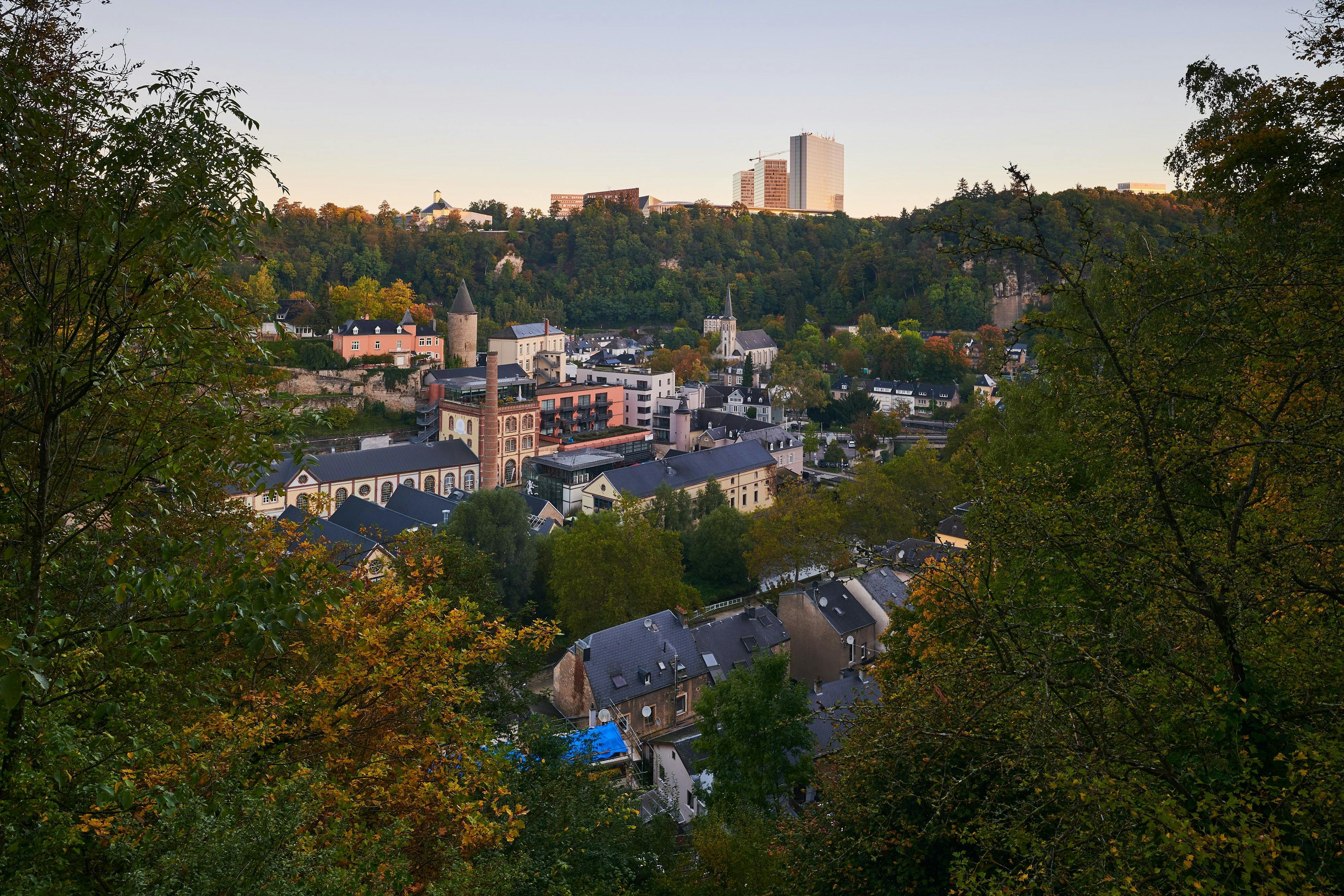
Interesting and fun facts about Luxembourg
Join us on a journey through captivating anecdotes and discover the allure of Luxembourg's past and present in this exploration of interesting facts about Luxembourg.
Welcome to the enchanting world of Luxembourg, a small yet fascinating European country that beckons with its rich history and charming landscapes. Nestled between Belgium, France, and Germany, Luxembourg boasts a unique blend of cultures and a captivating tapestry of stories.
Cultural facts about Luxembourg
From its medieval castles that whisper tales of bygone eras to the dynamic cityscape of Luxembourg City, where modernity meets tradition, we’ll unveil the hidden treasures of this captivating land.
National Day celebrates the Grand Duke's birthday
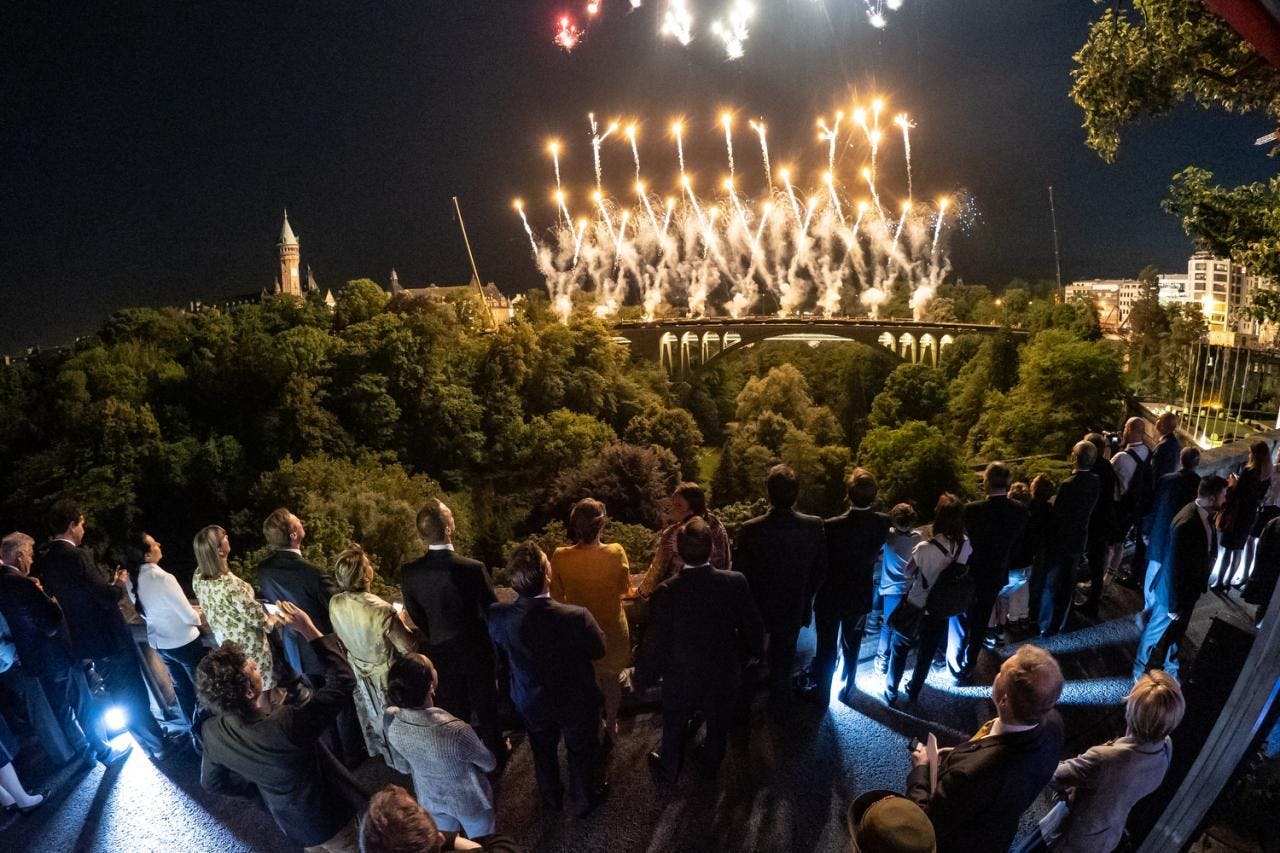
Read more
In contrast to other nations where national holidays commemorate independence or pivotal historical revolutions, Luxembourg uniquely celebrates its National Day by honoring the Grand Duke's birthday. The date of this festive occasion has evolved throughout history, adapting to changes in leadership. In 1919, with the ascent of Grand Duchess Charlotte to the throne, January 23rd became the designated day for celebration. Subsequently, in 1947, it was officially declared a public holiday.
A significant shift occurred on December 23, 1961, when a Grand Ducal decree fixed June 23rd as the anniversary celebration date for practical reasons, allowing festivities to take place during the warmer summer months. This date has stood the test of time since then.
What happens on the birthday of Duke?
This day of jubilation blends the exuberance of the entire population with more traditional customs, including a military parade, Te Deum, torchlight procession, and a spectacular fireworks display.
Luxembourg has six UNESCO World Heritage sites
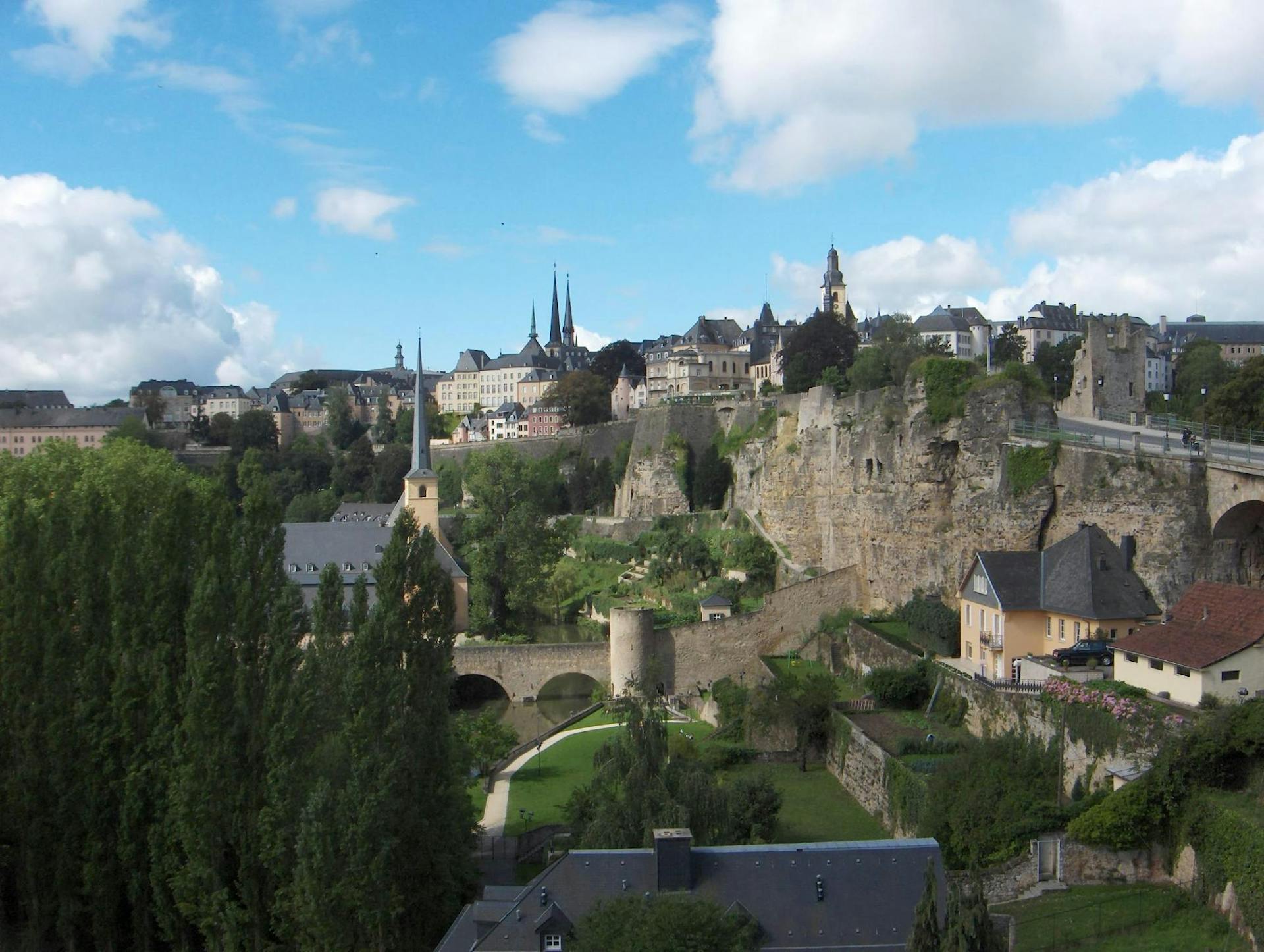
Luxembourg stands proud with a total of six UNESCO World Heritage sites, each a testament to the country's rich cultural and natural diversity. Since 1994, the historic districts and fortifications of Luxembourg City have held the esteemed UNESCO designation, marking the beginning of the nation's UNESCO journey. Today, this small yet culturally vibrant country boasts a remarkable array of UNESCO recognitions spanning various domains, including World Heritage, Intangible Heritage, Memory of the World, Biosphere Reserves, and Global Geoparks.






Luxembourg City has twice been named the European Capital of Culture
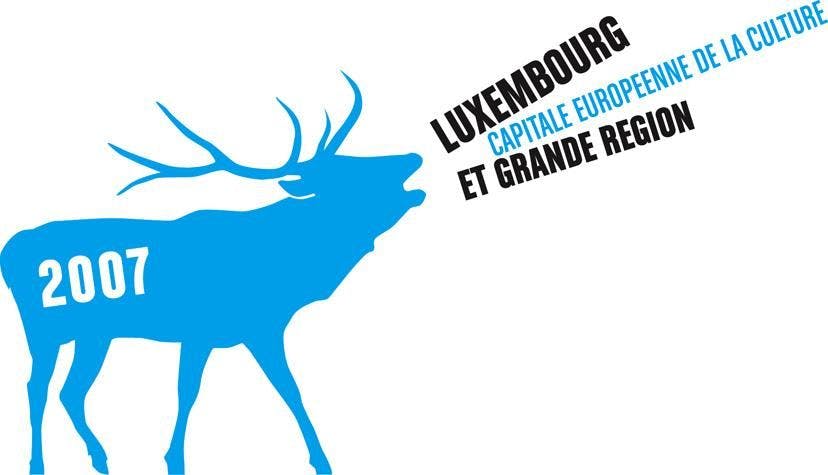
Every year, the European Capital of Culture title graces one or more cities, and Luxembourg City has had the honor not just once but twice. In 1995, the Grand Duchy's capital received this prestigious designation from the European Union, marking its debut on the cultural stage. A dozen years later, in 2007, Luxembourg, in collaboration with its neighboring regions, once again basked in the spotlight, showcasing its cultural wealth.
However, the motivations behind these two accolades differed. Unlike 1995, the 2007 event had a dual strategic agenda for the government. Firstly, it aimed to transform Luxembourg's negative image as a tax haven or a "rogue state" into that of a socially and economically dynamic entity.
Secondly, the goal was to culturally elevate the capital, using this narrative to position Luxembourg as a driving force in a vast economic space comprising 11 million inhabitants across four states. However, this ambition proved somewhat illusory given the modest role of culture in comparison to the "hard" political, economic, and social realities.
Luxembourg is one of the safest countries in world
If you're wondering, what is Luxembourg known for, one of the most common responses is its unparalleled safety. Renowned as one of the safest countries globally, Luxembourg boasts impressively low crime rates, encompassing a spectrum of risks such as political instability, war, homicides, kidnappings, and property crimes.
How safe actually?
Consistently ranked among the safest nations, Luxembourg secures the 15th position in the Global Residence Index's Personal Safety Index and is highlighted as having negligible risk in Safeture's Risk Map.
Read the article
Historical interesting facts about Luxembourg
Now let's talk history, as we explore the unusual facts about the Grand Duchy's past. How many of those do you know?
Luxembourg is named after an ancient fortress
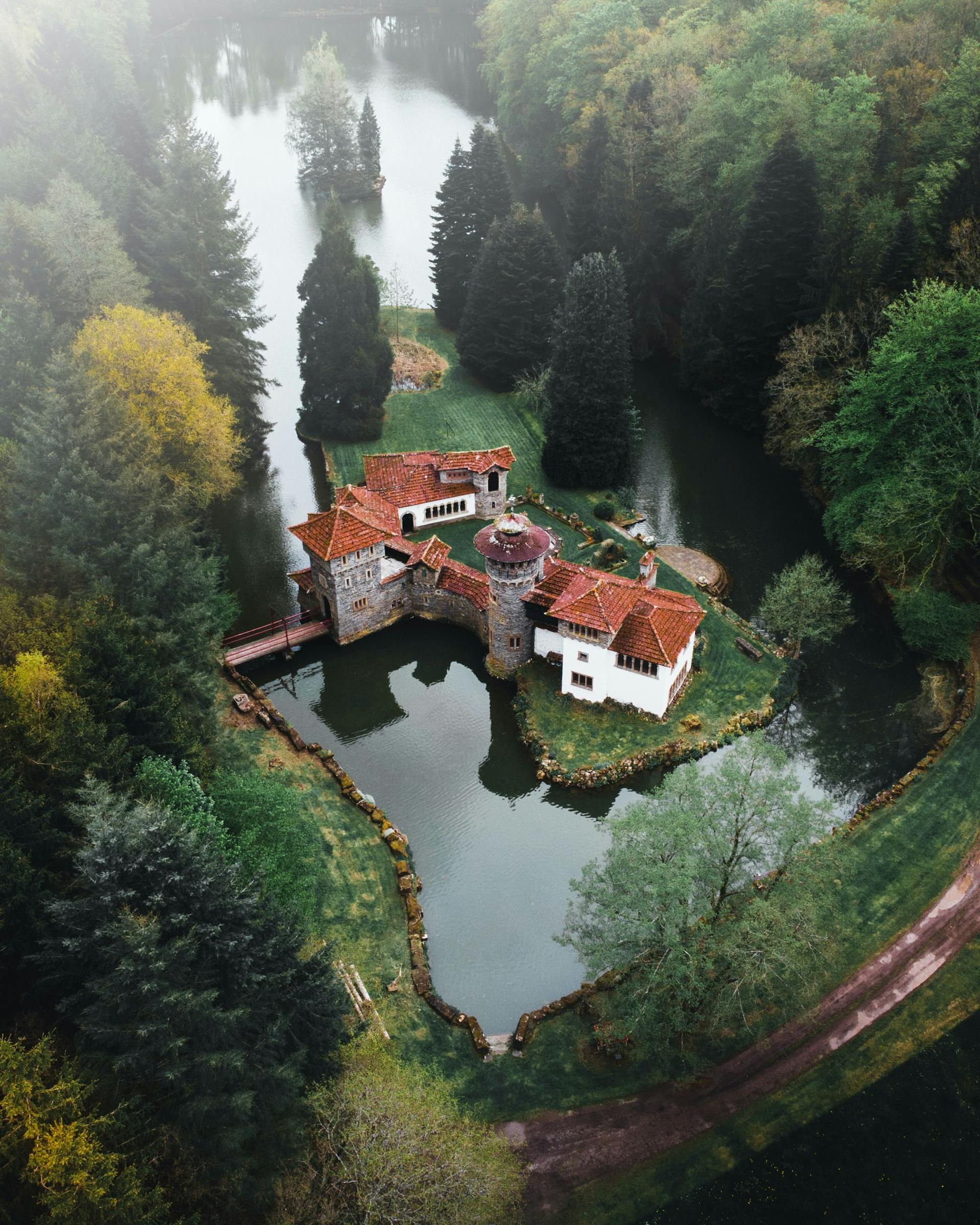
Exploring Luxembourg's fascinating history unveils a captivating tale rooted in an ancient fortress, making it a standout among Luxembourg's interesting facts.
Originally inhabited by the Celtic tribe of the Treveri, the name "Luxembourg" emerged in historical records around 963 AD.
Count Sigefroi, a noble from the Meuse-Moselle region, exchanged lands with the Abbey of Saint-Maximin de Trèves, acquiring a rugged promontory with a small fort known as "Lucilinburhuc" or "small fortress" in literal translation, likely dating back to Roman times.
This marks the earliest mention of the name "Luxembourg," though under its former appellation. Promptly, Sigefroi commissioned the construction of a more substantial castle on this site, laying the foundation for the town of Lucilinburhuc, later known as Luxembourg, to flourish.
Luxembourg has an impressive network of underground tunnels
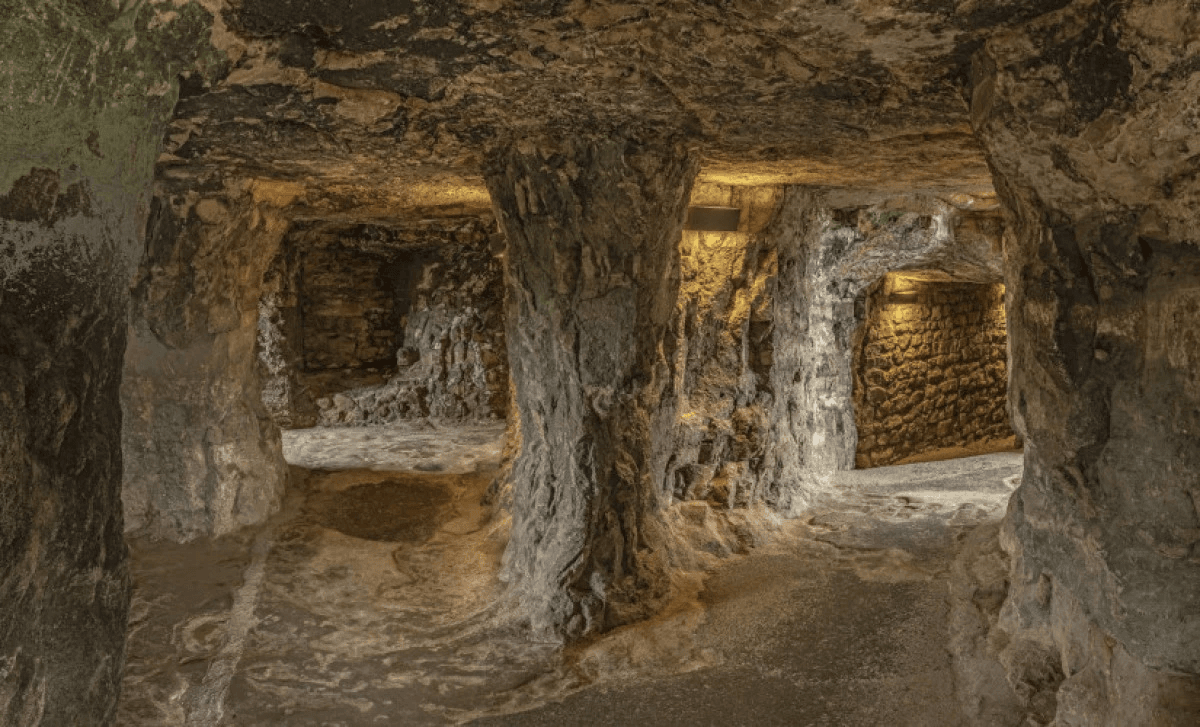
Unveiling a hidden world beneath Luxembourg, the Bock and Pétrusse Casemates stand as a colossal network of underground tunnels and vaults, etched into the rock, serving as integral components of the city's defenses. Dating back to the 17th and 18th centuries, these subterranean marvels stretched for many kilometers.
These Luxembourg casemates hold mysteries and, if they could speak, would recount eerie tales from an era when Luxembourg stood as one of Europe's most coveted fortresses. The defense system, delving multiple stories deep with galleries reaching depths of 40 meters, earned Luxembourg the rightful moniker of the "Gibraltar of the North."
In 1867, as a consequence of Luxembourg's neutralization, the fortress was evacuated and dismantled over 16 years. Despite efforts, the underground network, reduced to 17 kilometers, eluded destruction. Repurposed after losing military utility, during both World Wars, the Casemates du Bock and those in the Pétrusse Valley served as shelters, providing refuge for up to 35,000 people during alerts or bombardments.
Now open to the public, these underground wonders offer a unique glimpse into Luxembourg's military past and stand as a testament to the resilience of its subterranean legacy.
Luxembourg is a land full of castles
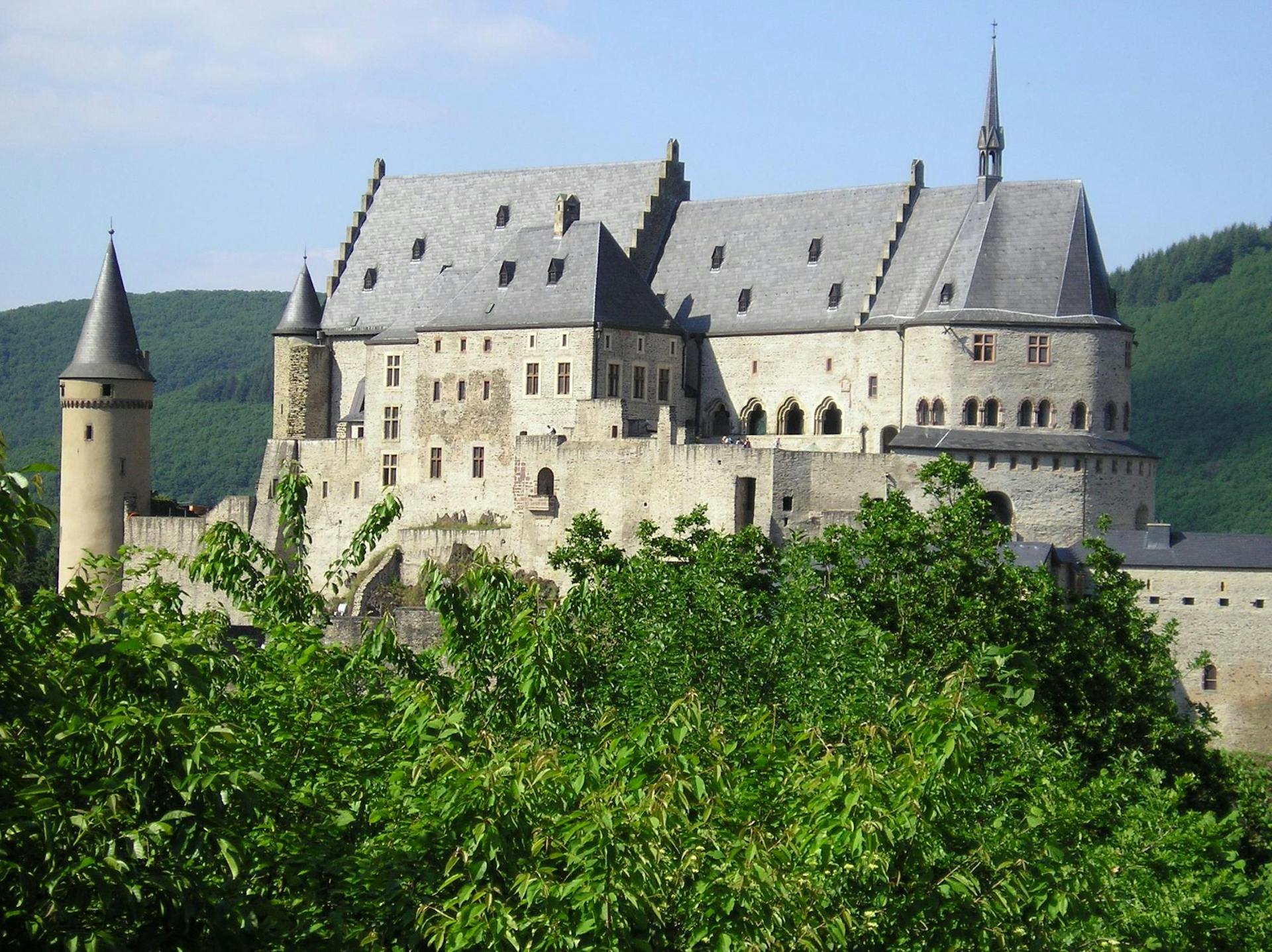
Luxembourg's landscape, historically coveted by major powers, bears witness to its tumultuous past through a plethora of fortifications, now a treasure trove for history enthusiasts.
With over 70 castles scattered across the country, Luxembourg boasts a rich heritage born out of the need for protection against invasions.
Notable among these are the majestic Vianden Castle in the northeast, the picturesque Beaufort Castle, the imposing complex of Larochette Castle in the Mullerthal region, and the formidable Bourscheid Castle nestled in the Ardennes.

Vika, Luxembourgish language teacher in interview with Luxtoday
Curious economic and political facts (with infographics!) about Luxembourg
Well did you know that being the financial center of Europe, Luxembourg doesn't even have its own mint? Coins and banknotes come from neighboring countries. Read on to find out what other interesting facts we have found about this amazing country.
Luxembourg is one of the richest countries in the world
Another interesting fact about Luxembourg is its status as one of the smallest yet wealthiest countries globally. Despite its size, Luxembourg boasts the highest per capita Gross Domestic Product (GDP) in the world, standing at $126,598. This places Luxembourg at the pinnacle, surpassing countries like Norway with $105,825 and Ireland with $103,311.
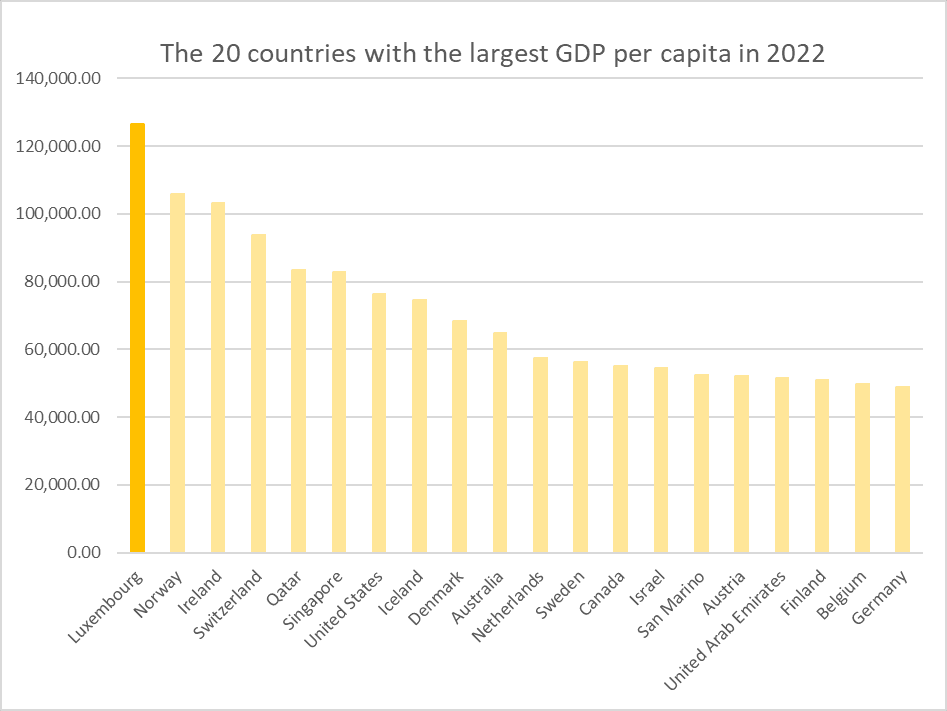
Are people in Luxembourg wealthy too?
However, before considering a move, it's crucial to understand that while GDP per capita is a telling statistic, it doesn't account for wealth distribution. It simply divides the total GDP by the population, offering a snapshot of average income. Nonetheless, Luxembourg's economic prowess remains a remarkable and interesting facet of this dynamic nation.
The minimum wage in Luxembourg is one of the highest in the world
Luxembourg stands out globally not just for its economic prosperity but also for its commitment to fair wages.
This places Luxembourg among the countries with the highest minimum wages. As of 2022, the International Labour Organization ranked Luxembourg as the fourth country globally in terms of minimum wages, following New Zealand, Australia, and Switzerland, which claimed the top spot.
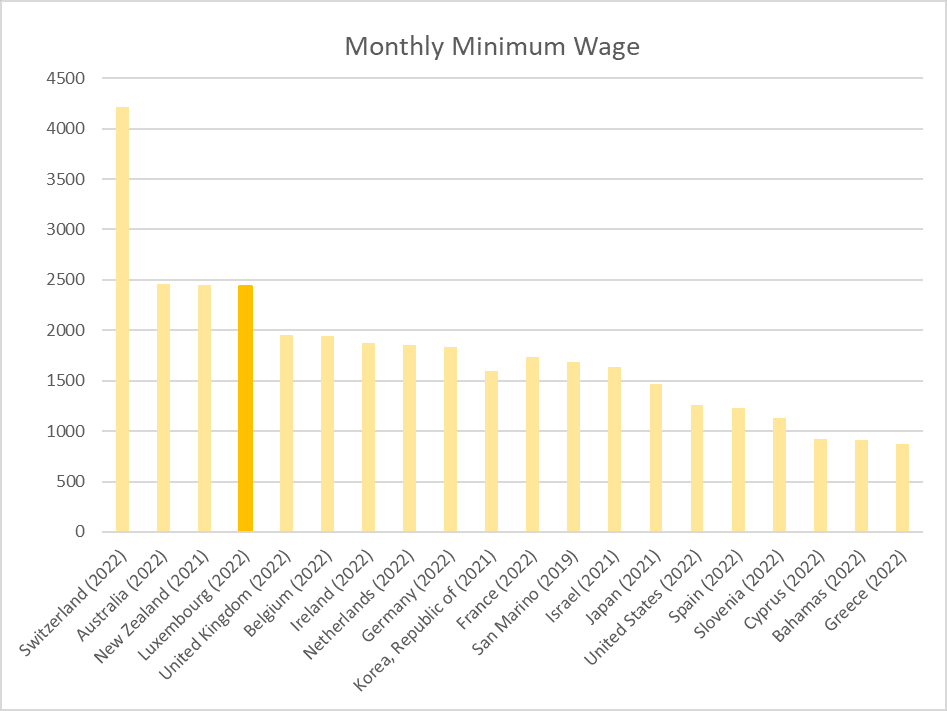
Luxembourg is known to be a tax haven
Luxembourg has earned a renowned status as a tax haven, a reputation cultivated since the 1960s, making it an appealing choice for wealthy individuals and corporations.
Recent years have seen significant policy changes in Luxembourg, such as the abolition of banking secrecy and active participation in international cooperation through automatic information exchange. Nevertheless, Luxembourg maintains a high level of financial secrecy.
The intricacies of Luxembourg's tax policies continue to draw attention, raising discussions about the need for more stringent international standards to address tax avoidance.
Read more
Frequently Asked Questions (FAQ)
Why is Luxembourg known as the "Gibraltar of the North"?
Luxembourg earned the moniker "Gibraltar of the North" due to its formidable fortifications. The city's historic defense system, featuring multi-level casemates and extensive tunnels, garnered recognition for its military prowess. The comparison to Gibraltar highlights Luxembourg's strategic importance and its historical role as a well-fortified stronghold in Europe.
How many castles are there in Luxembourg?
Luxembourg boasts a remarkable collection of over 70 castles. These architectural gems, scattered across the country, narrate tales of the nation's rich history and its enduring resilience. Notable among them are Vianden Castle in the northeast, Beaufort Castle, Larochette Castle in the Mullerthal region, and Bourscheid Castle in the Ardennes.
What is celebrated on the Luxembourg national day?
Luxembourg's National Day, celebrated on June 23rd, commemorates the Grand Duke's birthday. This festive occasion features a grand military parade, the traditional Te Deum, torchlight processions, and a spectacular fireworks display. It unites the nation in joyous celebrations, blending modern festivities with cultural traditions to honor the country's heritage.
Where does the name Luxembourg come from?
The name "Luxembourg" finds its roots in the Latin term "Lucilinburhuc," meaning "small fortress." Dating back to 963 AD, the name first appeared when Count Sigefroi exchanged lands for a rocky promontory with a small fort. This marked the inception of Luxembourg, evolving from its ancient appellation as the city flourished around the newly constructed fortress.
Source: monarchie.lu, luxembourg.public.lu, luxembourg.public.lu, globalresidenceindex.com, safeture.com, lesfrontaliers.lu, fr.wikipedia.org, luxembourg-city.com, statista.com, ilostat.ilo.org
We took photos from these sources: Johny Goerend for Unsplash, monarchie.lu, Wikipedia, gouvernement.lu, Safeture, luxembourg-city.com, visualcapitalist.com